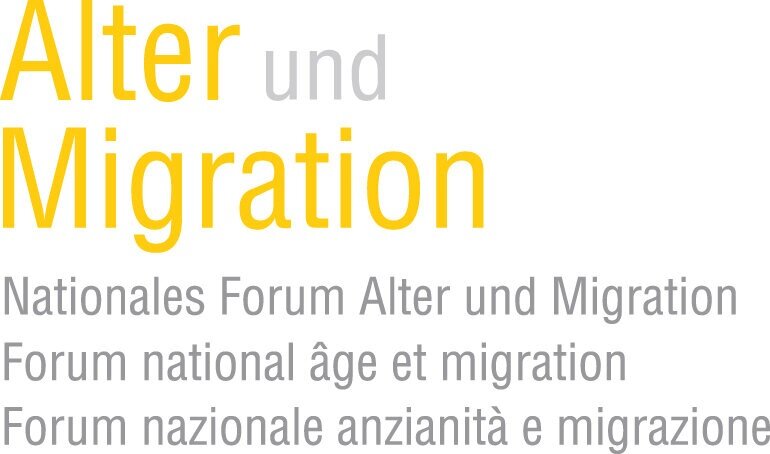Films
La Télé Vaud Fribourg (2021)
Retraite à l’étranger: épreuves et défis
Les premiers résultats d’une enquête sur les mobilités transnationales et le vieillissement des personnes âgées de 55 ans en Suisse viennent d’être publiés. Bien que 38 % des répondants affirment souhaiter rester en Suisse pour la retraite, une bonne partie d’entre eux envisage de plier bagage et de partir s’installer à l’étranger, ou de rentrer dans leur pays. Qu’est-ce qui motive ces futurs retraités, qu’ils soient suisses ou issus de l’immigration, à entamer une telle démarche??
Radio
Kanal K (2023)
Café Marzipan - Herausforderungen von Geflüchteten im Alter
Zehn Frauen des Café Marzipan waren zu Gast bei Radio Kanal K und haben während eines Halbtags eine Radiosendung gestaltet. Das Café Marzipan ist ein multikulturelles mehrsprachiges Konversationstreff in Aarau für Personen über 50 Jahre, organisiert vom HEKS AltuM – Alter und Migration Aargau. In der Sendung sprechen die Teilnehmerinnen über die Herausforderungen von geflüchteten Menschen, insbesondere im Alter.
Radio SRF 1 (2017)
Alt werden hier und dort: Migranten in der Schweiz
Moderation: Michael Brunner, Redaktion: Jürg Oehninger, Simone Hulliger, Unter Mitwirkung von Hildegard Hungerbühler, Vizepräsidentin Forum Alter und Migration
Der «Treffpunkt» beantwortet die Frage, wie es den Menschen mit Migrationshintergrund in der Schweiz geht, wie sie sich im Alter zurechtfinden und welche speziellen Bedürfnisse sie haben.
Films
Cerri, Olmo (2017)
Non ho l’età
Carmela, Don Gregorio, Gabriella et Lorella ne savent rien les uns des autres, mais ils ont de nombreux points communs. Ils sont arrivés en Suisse au milieu des années 1960, au plus fort de la grande vague d’immigration italienne, et ils ont fait l’expérience des difficiles années Schwarzenbach. Différentes histoires se recoupent au son de l’une des chansons les plus populaires de l’époque: «Non ho l'età». Quatre histoires racontent la migration, les rêves et la solidarité, mais aussi l’exclusion, la xénophobie, les agissements clandestins et l’exploitation.
Lüchinger, Thomas (2016)
Being there - Etre la
The film BEING THERE – DA SEIN portraits four people from different cultures giving care to dying people. By confronting their own mortality, they present ways how to show up for dying individuals in the last period of life, and how this connects to their own life again and again, reflecting on their relation to death and dying.
Lanfranconi, Ramona (2016)
Langi Ziit
Anna lives in New Zealand. Her ill mother is at the other end of the world and to her grandchildren in Switzerland Anna is the Skype-grandmother. Urs dreams of the Lucerne carnival, but just when the Swiss drive Winter out, Summer begins in New Zealand and for Urs, this means work. Since his retirement, Hugo has been homesick. Longing for a country, which he left as a young man. Yearning for Switzerland that no longer exists as it was then.
LANGI ZIIT is a fi lm about the moment when wanderlust turns into homesickness.
Yeşilöz, Yusuf (2016)
Actually, we were planning to go back home
They came to Switzerland to have a better life in the future – when they would return to their home countries. Thirty or forty years later they are still here. In the meantime they have reached retirement age. Three couples from Turkey and the Balkans have reached a crossroad in their lives and now face a crucial decision: do they return home or stay here in Switzerland? This question has accompanied these immigrants the whole time they were here. Now that they are older, the answer becomes urgent. Their families and children’s families must make a decision. Will the older generation go back or not? Who will look after the parents whether here or there? What happens now?
The inner conflict between here and there has left its imprint on the lives of the immigrants. The decisions they make in the end show their capacity to deal with a continuing dilemma and difficult situations as well as to adjust to new conditions and find practicable solutions.
Pauciello, Gianni (2010)
Così siamo arrivate fino adesso
Im Dokumentarfilm kommen fünf Italienerinnen zu Wort, welche als junge Frauen in die Schweiz kamen und heute in Bern leben. Sie schildern, wie sie im Italien vor und während des zweiten Weltkrieges aufgewachsen sind. Eindrücklich ist der Mut, den sie bewiesen, als sie alles zurück liessen und sich mit nichts als einer Adresse in der Hand auf die Reise in ein fremdes Land machten. Wie kamen sie zurecht, welchen Weg schlugen sie ein, fanden sie Liebe, Glück? Und: Was beschäftigt die Frauen heute? Wie sieht ihr Alltag aus? Die fünf biografischen Erzählungen sind - unterlegt mit Fotos aus den privaten Alben und Bildern aus ihrem Alltag - zu einem Film verwoben, der einen berührenden Einblick in die Vergangenheit und Gegenwart der Protagonistinnen gewährt
